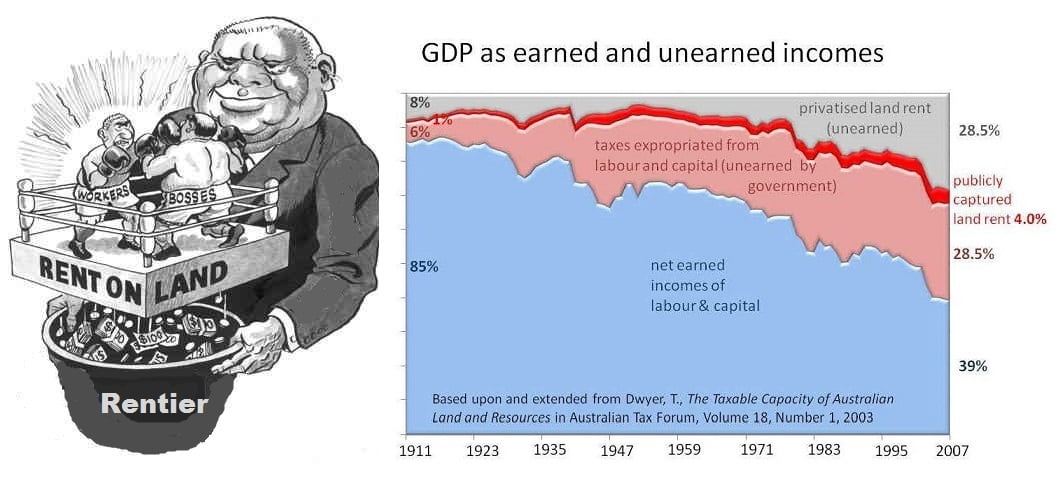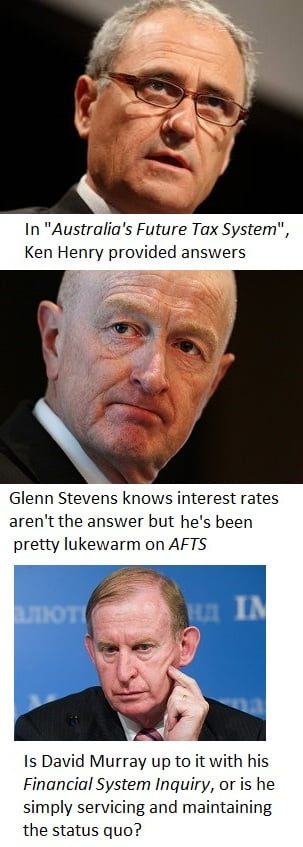
[AHEM]
 “I do not know of a single Nobel Laureate in Economics who forecast the present crash, or any other. Two of them, Chicago-Schoolers Robert Merton and Myron Scholes, founded Long Term Capital Management to demonstrate the brilliance of their investment theories. It went down in flames in 1997, saved only by a Federal bailout. Nothing daunted, media and public speakers seeking confirmation lean hard on citations of Nobel Laureates. The media might better consider others with better track records.
“I do not know of a single Nobel Laureate in Economics who forecast the present crash, or any other. Two of them, Chicago-Schoolers Robert Merton and Myron Scholes, founded Long Term Capital Management to demonstrate the brilliance of their investment theories. It went down in flames in 1997, saved only by a Federal bailout. Nothing daunted, media and public speakers seeking confirmation lean hard on citations of Nobel Laureates. The media might better consider others with better track records.
“Modern Georgists enter this period of danger and opportunity in relatively good shape. Several have outstanding scorecards calling the current crash. These include Fred Foldvary (2007, The Depression of 2008); Fred Harrison (2005, Boom/Bust); Michael Hudson (2007, ‘The New Road to Serfdom’, Harper’s); and Bryan Kavanagh (2007, Unlocking the Riches of Oz).”
– THE MASON GAFFNEY READER: Essays on Solving the “Unsolvable”, 2013
CAN MONEY DEFEAT TRUTH?
There’s any amount of money to be found for conservative think tanks, such as the Heritage Foundation, the Institute of Public Affairs, the Sydney Institute, etc., because these bodies believe things are pretty right as they are. (“Only leftists and socialists want reform.”) This mindset appeals, of course, to the 0.1% who become big donors.
Gina Rinehart and Harry Triguboff would not support a body that supports mining and land taxes. Fair enough. I guess that’s democracy?
Well, only up to a point. Did classical economics need to be redesigned to conflate land with capital in order to suit these people, the 0.1%? Once there was land, labour and capital, but natural resources have somehow transmogrified into capital, simply to appease our rent-seeking overlords. (Mason Gaffney provides chapter and verse here.)
Also, did our tax systems have to be redesigned to relegate land and resource taxation to the bottom of the list of revenue bases, instead of being placed at the top where it once stood in the progressive era?
If you haven’t noticed, the world is currently reaping the whirlwind for appeasing those who rent-seek in land and natural resources but, curiously, no politician has had the gumption to say as much. In fact, in Australia Tony Abbott glories in the fact that he is abolishing the mining tax! Stupidity rules in Australia!
Although the taxation of land and natural resources remains invisible to economists and politicians, as the limerick suggests, they must eventually wake up to reality:-
An economics professor planned
to live without acknowledging land.
He would have succeeded
but found that he needed
food, clothing and somewhere to stand.
THE PALE BLUE DOT

Look again at that dot. That’s here. That’s home. That’s us. On it everyone you love, everyone you know, everyone you ever heard of, every human being who ever was, lived out their lives. The aggregate of our joy and suffering, thousands of confident religions, ideologies, and economic doctrines, every hunter and forager, every hero and coward, every creator and destroyer of civilization, every king and peasant, every young couple in love, every mother and father, hopeful child, inventor and explorer, every teacher of morals, every corrupt politician, every “superstar,” every “supreme leader,” every saint and sinner in the history of our species lived there–on a mote of dust suspended in a sunbeam.
The Earth is a very small stage in a vast cosmic arena. Think of the rivers of blood spilled by all those generals and emperors so that, in glory and triumph, they could become the momentary masters of a fraction of a dot. Think of the endless cruelties visited by the inhabitants of one corner of this pixel on the scarcely distinguishable inhabitants of some other corner, how frequent their misunderstandings, how eager they are to kill one another, how fervent their hatreds.
Our posturings, our imagined self-importance, the delusion that we have some privileged position in the Universe, are challenged by this point of pale light. Our planet is a lonely speck in the great enveloping cosmic dark. In our obscurity, in all this vastness, there is no hint that help will come from elsewhere to save us from ourselves.
The Earth is the only world known so far to harbor life. There is nowhere else, at least in the near future, to which our species could migrate. Visit, yes. Settle, not yet. Like it or not, for the moment the Earth is where we make our stand.
It has been said that astronomy is a humbling and character-building experience. There is perhaps no better demonstration of the folly of human conceits than this distant image of our tiny world. To me, it underscores our responsibility to deal more kindly with one another, and to preserve and cherish the pale blue dot, the only home we’ve ever known.
— Carl Sagan, Pale Blue Dot, 1994
_______________________________________________________________________________
Hint: Just over half way down in the light brown band; that’s earth from Voyager at 6 billion kilometres.
_______________________________________________________________________________
And the hope for humanity on this pale blue dot?
It lies within the formula Yt – rRt = wLt + iKt, or, more simply, P – R = W + I
LINDSAY DAVID’S IMPORTANT NEW BOOK
I’m just over half way through reading Lindsay David’s Australia: Boom to Bust. I’m up to page 123, which is headed “Property prices in Australia were not always disproportionate to incomes.”
What a sensible, well-researched book! How it challenges the existing Australian mindset! (“We’re different!” or, “It’s supply and demand.”)
So far, David has twice emboldened the sentence : In Australia, Real Estate prices do not depend on supply and demand, but the banks’ willingness to lend excessively to property purchasers. Spot on! That sentence squares exactly with the statement in a recent post of mine by former Wall Street banker, now professor of economics (UMKC), Michael Hudson.
Lindsay David has Australia resting on three pillars: financial institutions, natural resources, and real estate. He dissects and analyses each pillar and shows how the collapse of one must affect the others. His description of an auction (pp.110-112) is priceless—so to speak—not because it is far-fetched, but because it is so hilarious to see such rampant stupidity documented in print.
Even before I’ve completed it, I can recommend Australia: Boom to Bust as an excellent read.
“THE AGE” 22 AUGUST 2014

ACTEW CORRUPT PRACTICE
SUBMISSION TO ACT GOVERNMENT TREASURY PANEL
Note: ACTEW Corporation (ACTEW) owns and operates the water and sewerage assets and business in the Australian Capital Territory.
____________________________________________________________
14 May 2014
Industry Panel Secretariat
GPO Box 158
Canberra ACT 2601
Dear Sirs
ACTEW STATEMENT OF FACTS AND CONTENTIONS
I wish to refer the Panel to my previous submissions over many years to both the Independent Competition and Regulatory Commission, the Productivity Commission, the Queensland Competition Authority and other regulatory inquiries. I am happy to provide copies.
The fundamental problem the Panel faces is that the system of regulating monopoly utilities in Australia is fundamentally institutionally corrupt.
It is a corruption of economic thought in that it mistakenly assumes that maximisation of profits in a monopoly situation has some relationship to economic efficiency. That is the reverse of the truth. Economic efficiency requires that society obtain satisfaction of its needs at least cost.
In a competitive market, profit maximisation is valuable because it drives the search for least cost solutions: in a monopoly market, profit maximisation really represents the imposition of a toll or tax upon the community.
It is a corruption of legal process in that hardly ever is evidence tested on oath and the victims of monopoly abuses are forced to pay through their tolls and charges for the expensive legal and technical advice used to justify the abuses perpetrated against them. There is no equality of funding in any of these matters and the illusion that independent regulatory commissions are consumer watchdogs is false. They cannot be. They are meant to be independent decision-makers, not advocates for consumers.
The result of this one-sided system is that consumers are never properly represented. It was indeed remarkable that ICRC actually tried to do something sensible.
Terence M. Dwyer
FTIA, B.A. (Hons), B.Ec. (Hons) (Sydney) M.A., Ph.D. (Harvard), Dip. Law (Sydney)
THE BIG QUESTION

LATEST MICHAEL HUDSON – MAX KEISER INTERVIEW (FROM ABOUT HALF WAY MARK)
LAND-BASED REVENUES (RENTS) CREATE, TAXES DESTROY
“Put to the vote: as many are of the opinion that a public tax upon the land ought to be raised to defray the public charge, say ‘yea’.” …. “Carried in the affirmative, none dissenting.”
- Philadelphia’s first tax law, 30 January 1693
Clearly, it was once understood that land values—reflecting relative size, shape, topography, location of the allotment as to services, etc., were the perfect revenue base. The owner of a site should pay more for the privileges it held over other sites (and vice versa).
There was no consideration of taxing incomes nor local sales.
It was recognized that site values are community-created, owing nothing to what any individual had done on the site.
The American property tax has now come to confuse land and buildings, thereby placing a penalty on construction.
In Australia, the state of Victoria—which used to allow rating on the value of sites as though they were vacant (indeed half the population existed in site value rating municipalities in the 1990s)—now also taxes land and buildings together.
Although municipalities in the states of Queensland and New South Wales rate only on vacant land/site values, enterprising speculators have seen to it that an excellent principle is defeated by applying a “minimum rates” charge. This, of course, has the effect of those on the minimum rate therefore subsidising the holders of more valuable sites. (Joe Hockey would be pleased with this outcome!) In Queensland, former Gold Coast City Council mayor, Ron Clark, actually boasted that most of his ratepayers were on the minimum rate. (Sounds good, doesn’t it?)
The retrogression away from land-based revenues since the Progressive Era, has been matched by increasingly greater taxes on incomes and sales, revenues that are both more difficult to assess and collect, quite apart from having an anti-productive effect.
QUESTION: Why have we gone backwards in this fashion?
ANSWER: Because the rent-seeking 1% have had undue influence in designing our revenue systems.
QUESTION: What happens when reversal of this pathology is recommended?
ANSWER: The 1% resist it at any cost – even at the cost of an economic depression. (Refer to previous post.)
Such has become our ‘democracy’.